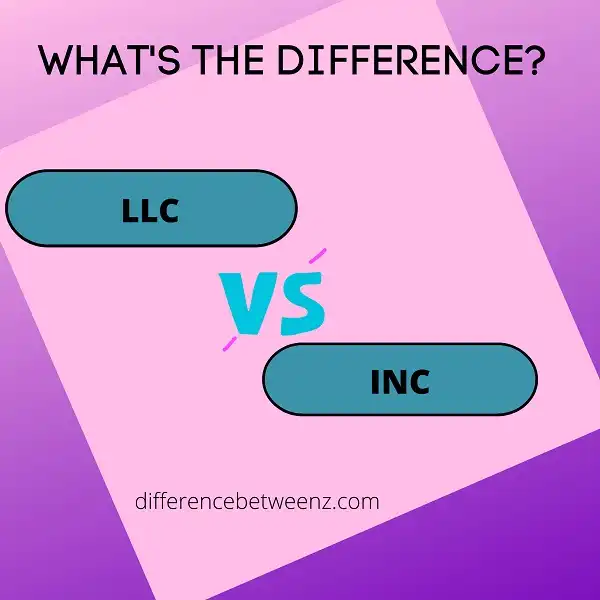When starting a business, there are many different types of entity structures to choose from. Two of the most common are LLCs and INCs. Though they have some similarities, there are also significant differences between these two types of entities. This blog post will outline the key differences between LLCs and INCs so you can make an informed decision about which is best for your business.
What is LLC?
LLC stands for limited liability company. LLCs are a popular choice for small businesses because they offer personal asset protection and flexibility when it comes to taxation and management. LLCs are also easy to set up and maintain. In most states, all you need to do is file a few simple paperwork with the secretary of state. LLCs can be managed by one or more people, and they can have any number of members. The members of an LLC are not personally liable for the debts of the LLC, which makes them an attractive business structure for those who want to limit their personal liability. LLCs are taxed as either pass-through entities or corporations, depending on how they are structured. This provides LLCs with a lot of flexibility when it comes to taxation. LLCs can also choose to be treated as S corporations, which can provide significant tax benefits for small businesses. All in all, LLCs are a versatile and attractive choice for small businesses.
What is INC?
INC ( INC, pronounced “ink”) is a corporation or business organization with the legal status of a detached commercial enterprise. INC has many features that distinguish it from other types of organizations, such as its legal status, ownership structure, and mode of operation. INC is typically organized around a group of shareholders who elect a board of directors to oversee the management of the company. The shareholders may also appoint an executive team to manage the day-to-day operations of the company. The INC form of organization is often used for businesses that are publicly traded on stock exchanges, though it can also be used for privately held companies. The main advantage of the INC form of organization is that it offers limited liability protection to its shareholders. This means that the shareholders are not personally liable for the debts and liabilities of the company. The INC form of organization also provides certain tax benefits and allows businesses to raise capital by selling shares of ownership in the company.
Difference between LLC and INC
LLC and INC are both business entities that offer liability protection to their owners. LLCs are more flexible when it comes to management and taxation, while Incs tend to be more complex and expensive to set up. LLCs are also not required to hold annual meetings or keep minutes, while Incs are. LLCs can have an unlimited number of members, while Incs are required to have a maximum of 2,000 shareholders. LLCs do not issue stock, while Incs do. Lastly, LLCs are not publicly traded, while Incs can be.
Conclusion
The biggest difference between LLCs and INCs is that an LLC offers personal liability protection for its owners, while an INC does not. If you are looking for a business structure that provides some liability protection for your personal assets, then the LLC is a good option. However, if you do not need this type of protection, then the INC may be a better choice because it is simpler and less expensive to set up.


